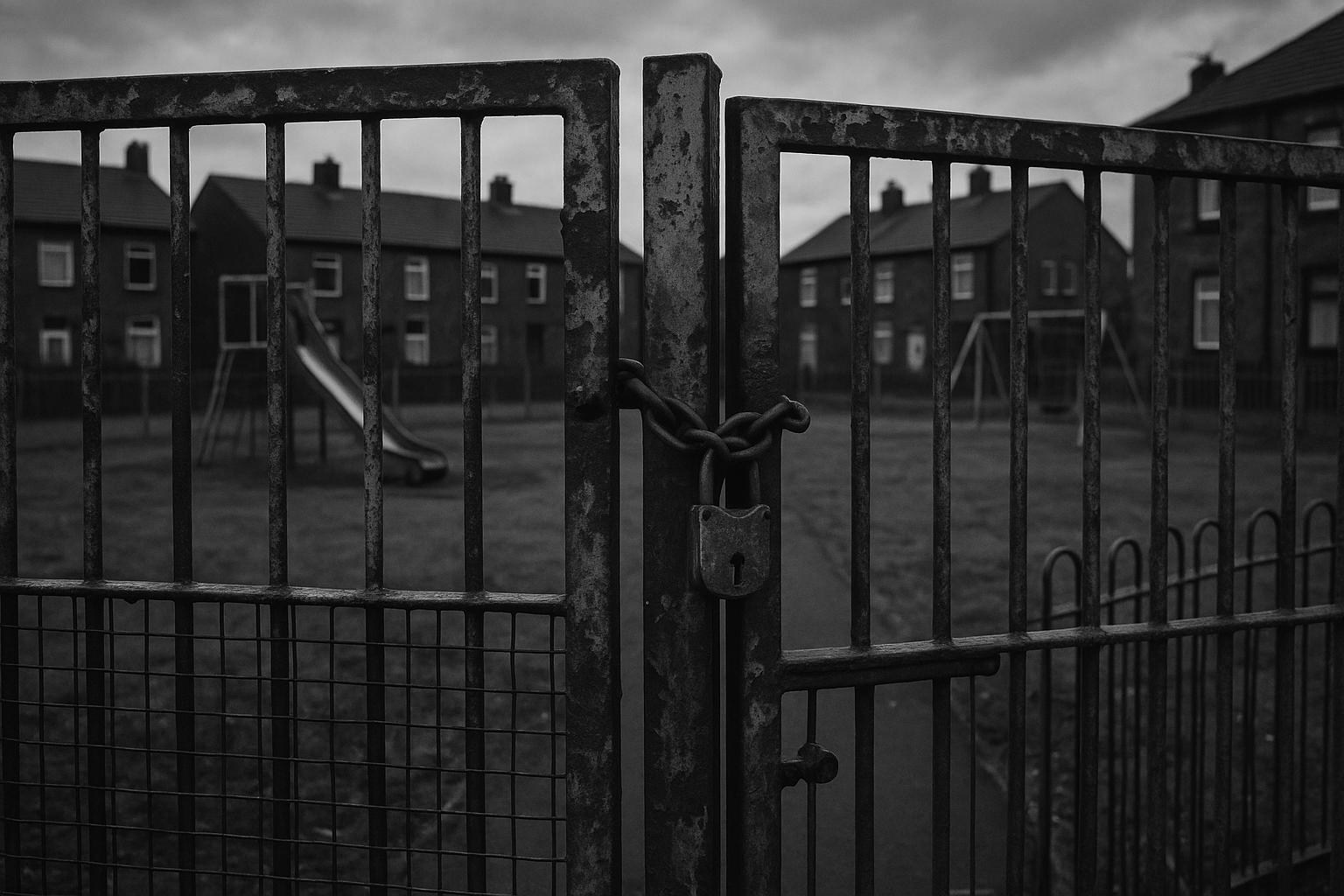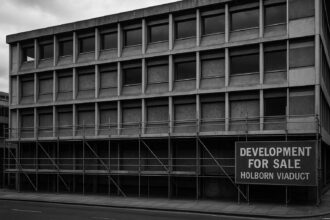More than ten years after the Rochdale grooming scandal emerged, locals express fear and betrayal as some convicted perpetrators, including Qari Abdul Rauf, still live nearby. A government inquiry has been launched following a critical report exposing systemic failings and reluctance to address the ethnic dimension of the crimes.
Residents of Rochdale have expressed deep unease and anger over the continued presence of convicted grooming gang perpetrators within their community, highlighting a profound sense of betrayal and insecurity lingering more than a decade after the infamous scandal first came to light. The grooming gang scandal, exposed in 2011, involved predominantly Pakistani-origin men sexually abusing vulnerable white working-class girls in the town. Despite some perpetrators being convicted, like former taxi driver and mosque teacher Qari Abdul Rauf—sentenced in 2012 for child sex trafficking and conspiracy—some remain living locally, stirring fear and disgust among neighbours who believe justice has not been fully served.
One resident living close to Rauf described him as a “monster” and voiced horror that he continues to reside where he once exploited young girls, underlining the ongoing trauma felt by the community. The man recounted watching children play near Rauf’s home with a sense of dread, vigilant for any potential threats. Another local mother cautioned her children against cycling near his residence, illustrating the lasting shadow cast by his crimes. Such sentiments reflect ongoing distrust and anxiety among residents who feel the authorities have failed to protect them adequately from known offenders within their midst.
The nationwide scandal has prompted mounting pressure on the UK Government, culminating recently in an official apology from Home Secretary Yvette Cooper and the launch of a long-overdue national inquiry into child sexual exploitation and grooming gangs. The inquiry follows a damning 197-page report from Baroness Louise Casey, which meticulously documented systemic failures by institutions charged with safeguarding children. Casey’s audit revealed that authorities had repeatedly neglected the ethnic dimension of the issue, with ethnicity data missing in two-thirds of child sexual abuse cases, obstructing meaningful accountability and targeted intervention.
Critically, the report underscored the disproportionate involvement of men of Asian, particularly Pakistani, heritage in grooming gangs, but noted legal and institutional reluctance to address this sensitive aspect out of fear of provoking accusations of racism. Responding to these findings, the government has committed to mandatory ethnicity and nationality recording in future abuse cases and pledged structural reforms aimed at prevention and improved victim protection. Cooper described the state’s multi-year inaction as a “stain on our society,” advocating for a legal reclassification that any penetrative sexual activity with minors under 16 should unequivocally be treated as rape.
Baroness Casey’s call for comprehensive, accurate national data collection and inter-agency cooperation reflects a broader recognition that previous investigations, including those covering high-profile cases in towns like Rotherham and Telford, were hampered by fragmented information and lack of transparency. Her 12 recommendations, all accepted by the government, seek to build a cohesive response capable of restoring public trust and delivering justice to survivors who have long felt ignored. The inquiry will also endeavour to review cold cases and bolster investigative resources, part of an effort to rectify decades of institutional neglect.
The political fallout has been significant, with opposition parties criticising both prior governments and the current Prime Minister for delays and inadequate responses. Public figures and commentators, some from outside the UK, have highlighted the scandal in discussions about governance, immigration policy, and community cohesion, further intensifying scrutiny on how authorities managed these crimes. Yet the pain expressed by those living in former hotspot areas like Rochdale remains acute, as communities grapple with living alongside individuals who committed some of the most heinous abuses.
This ongoing predicament sharpens the focus on how criminal justice and social services must balance rehabilitation, public safety, and the rights of victims and communities. The case of Qari Abdul Rauf exemplifies the complexity and sensibility surrounding offenders who remain residents in places marked by their crimes, renewing calls for transparent policies that prioritise victims’ welfare and community reassurance, while robustly managing the risk posed by convicted offenders.
 Reference Map:
Reference Map:
- Paragraph 1 – [1], [6]
- Paragraph 2 – [1]
- Paragraph 3 – [2], [4], [5]
- Paragraph 4 – [3], [2], [7]
- Paragraph 5 – [2], [5]
- Paragraph 6 – [1], [6]
Source: Noah Wire Services
- https://www.express.co.uk/news/uk/2072056/town-ravaged-grooming-gangs-livid – Please view link – unable to able to access data
- https://www.ft.com/content/cc7efa58-9ace-4c14-a9b6-34c3930b9e94 – UK Home Secretary Yvette Cooper has issued a formal apology for the British state’s 16-year failure to protect children from grooming gangs, following a damning report by Baroness Louise Casey. The 197-page report uncovered institutional failures, reluctance to confront issues of ethnicity, and a failure to treat victims appropriately. A significant number of perpetrators were men of Asian backgrounds, yet ethnicity data often went unrecorded, hindering accountability. Cooper accepted all 12 of Casey’s recommendations and announced a full national inquiry. Going forward, ethnicity and nationality will be formally documented in child abuse cases. Cooper labeled the state’s inaction a “stain on our society” and emphasized the need to classify any penetrative sex with minors under 16 as rape without exceptions. The scandal has drawn political criticism, including backlash against Prime Minister Keir Starmer for previously opposing an inquiry. The inquiry will build on prior investigations, including work by Alexis Jay on child sexual abuse. The Casey audit stressed the urgent need for improved data and structural reform to prevent further abuse and restore trust in child protection systems.
- https://www.ft.com/content/4e5c334e-48a1-4b20-ad71-4551caf382c7 – Baroness Louise Casey has strongly criticized the state of national data collection on grooming gangs in England and Wales, calling it incomplete, unreliable, and a “disaster.” Her critique follows the release of a national audit into group-based child sexual exploitation (CSE), which she led. The audit highlighted the government’s inability to provide accurate statistics due to outdated and inadequate data, with the last comprehensive survey conducted 12 years ago. The study estimated that 500,000 children are sexually abused annually, yet it could not determine how many cases involved grooming gangs. Casey emphasized the importance of collecting comprehensive and accurate data, especially regarding ethnicity and nationality of suspects, and urged mandatory data sharing among safeguarding partners. The Home Office estimates around 17,000 children become CSE victims each year. Casey’s audit made 12 recommendations, including improved inter-agency cooperation and compulsory data transparency. Her findings follow numerous local investigations in areas like Rotherham and Telford. The government has accepted her recommendation for a limited national inquiry, to follow up on prior investigations led by Alexis Jay. Victims continue to voice frustration over the lack of action and protection.
- https://apnews.com/article/da6b9f3d9dea41530dfb017c9f3bde62 – A recent UK government report has revealed that authorities have historically avoided addressing the ethnic backgrounds of suspects involved in child sexual abuse cases, particularly those related to organized grooming gangs. The review found that in two-thirds of such cases, ethnicity data was not recorded, hindering efforts to identify crime patterns. It highlighted a significant over-representation of Asian and Pakistani heritage men among known offenders, though individuals of other ethnicities were also implicated. Fear of being perceived as racist contributed to the lack of data collection. In response, the government announced mandatory recording of suspect ethnicity and nationality by police and plans to address uninvestigated cold cases. Home Secretary Yvette Cooper emphasized a comprehensive response, including a new mandatory rape charge for sexual acts with minors under 16. The moves follow long-standing pressure for a national inquiry into child sexual abuse and concern over prior failures to implement recommendations from a lengthy earlier investigation. The issue has also become politically charged, with figures like Nigel Farage and Elon Musk highlighting it in the context of immigration and government accountability.
- https://www.reuters.com/world/uk/uk-failed-identify-disproportionate-number-asian-men-grooming-gangs-report-says-2025-06-16/ – A recent report has criticized UK authorities for failing to properly address and record the involvement of a disproportionate number of Asian men, particularly of Pakistani heritage, in organized child sexual abuse cases over the past 15 years. The report, commissioned by Prime Minister Keir Starmer following criticism from Elon Musk and conducted by House of Lords member Louise Casey, revealed that ethnicity was not recorded in two-thirds of such cases. It cited reluctance among officials to address the issue due to fears of being perceived as racist or causing community tensions. Interior Minister Yvette Cooper apologized in parliament, acknowledging systemic failures in justice delivery and data collection. The government has accepted all report recommendations, including launching a national inquiry and enhancing investigative efforts. Over 800 cases are currently under review, with the number expected to exceed 1,000. The issue has spurred political backlash from opposition parties accusing the government of delayed action and neglecting victims’ needs.
- https://www.theguardian.com/uk/2012/may/09/rochdale-child-sex-ring-jailed – In May 2012, nine men were convicted for their involvement in a child sex ring in Rochdale, England. Among them, Qari Abdul Rauf, a former taxi driver and mosque teacher, was sentenced to six years for conspiracy and six years concurrently for trafficking for sexual exploitation. Rauf was found to have exploited young girls, including a 15-year-old victim, by providing them with alcohol and facilitating their sexual exploitation. The case highlighted the systematic abuse and exploitation of vulnerable young girls in the area, leading to widespread public outrage and calls for justice. The convictions were part of a broader effort to address child sexual exploitation in the UK, with authorities facing criticism for previous failures to act on such cases.
- https://www.bbc.com/news/articles/cx2qjd95q1eo – Home Office Minister Jess Phillips has apologised to MPs for a delay to the publication of a report on grooming gangs. In January, the government asked Baroness Louise Casey to lead a “rapid” three-month audit into the data and evidence on the nature and scale of group-based child sexual abuse. Speaking in the House of Commons on Monday, Conservative frontbencher Katie Lam said Baroness Casey’s review, along with a framework for local grooming gang inquiries, had been due for publication in May and asked for an updated timeline. Phillips told MPs she was sorry for the “month’s wait” but added “I’ve waited 14 years”, a reference to the length of time the Conservatives were in government. The minister said Baroness Casey had requested a “short extension” to her work and that it was expected “very shortly”.
Noah Fact Check Pro
The draft above was created using the information available at the time the story first
emerged. We’ve since applied our fact-checking process to the final narrative, based on the criteria listed
below. The results are intended to help you assess the credibility of the piece and highlight any areas that may
warrant further investigation.
Freshness check
Score:
7
Notes:
The narrative highlights ongoing concerns in Rochdale regarding convicted grooming gang members residing locally. While the specific article was published on June 16, 2025, similar reports have appeared in the past, notably in January 2024, when Qari Abdul Rauf was reported to still be living in Rochdale despite a deportation order. ([telegraph.co.uk](https://www.telegraph.co.uk/news/2024/01/22/rochdale-grooming-ring-abusers-not-yet-deported/?utm_source=openai)) This suggests that the core issue has been a subject of public concern for over a year. The inclusion of recent data and developments may enhance the freshness score, but the recurring nature of the issue indicates a lower score. Additionally, the article references a 197-page report by Baroness Louise Casey, which was released six days prior to the article’s publication, indicating the use of recent information. ([ft.com](https://www.ft.com/content/cc7efa58-9ace-4c14-a9b6-34c3930b9e94?utm_source=openai))
Quotes check
Score:
8
Notes:
The article includes direct quotes from residents expressing their concerns about convicted grooming gang members living in Rochdale. A search for these specific quotes did not yield earlier instances, suggesting they are original to this report. However, similar sentiments have been expressed in previous reports, such as those from January 2024, indicating that while the quotes may be original, the themes are recurring. ([telegraph.co.uk](https://www.telegraph.co.uk/news/2024/01/22/rochdale-grooming-ring-abusers-not-yet-deported/?utm_source=openai))
Source reliability
Score:
6
Notes:
The narrative originates from the Express, a UK-based tabloid newspaper. While it is a well-known publication, it is often considered less reliable due to sensationalist reporting. The Express has previously reported on similar issues, such as the deportation challenges of Rochdale grooming gang members, indicating a history of covering this topic. ([telegraph.co.uk](https://www.telegraph.co.uk/news/2024/01/22/rochdale-grooming-ring-abusers-not-yet-deported/?utm_source=openai)) However, the publication’s reputation for sensationalism warrants caution.
Plausability check
Score:
7
Notes:
The claims in the narrative align with known facts, including the ongoing legal battles and deportation orders for members of the Rochdale grooming gang. For instance, Qari Abdul Rauf was reported to still be residing in Rochdale despite a deportation order in January 2024. ([telegraph.co.uk](https://www.telegraph.co.uk/news/2024/01/22/rochdale-grooming-ring-abusers-not-yet-deported/?utm_source=openai)) The article also references a recent report by Baroness Louise Casey, which was released six days prior to the article’s publication, indicating the use of current information. ([ft.com](https://www.ft.com/content/cc7efa58-9ace-4c14-a9b6-34c3930b9e94?utm_source=openai)) However, the Express’s history of sensationalism and the recurring nature of the issue suggest a need for cautious interpretation.
Overall assessment
Verdict (FAIL, OPEN, PASS): OPEN
Confidence (LOW, MEDIUM, HIGH): MEDIUM
Summary:
The narrative addresses ongoing concerns in Rochdale regarding convicted grooming gang members residing locally. While the article includes original quotes and references recent reports, the Express’s history of sensationalism and the recurring nature of the issue suggest a need for cautious interpretation. The source’s reliability and the freshness of the content are moderate, leading to an overall assessment of ‘OPEN’ with medium confidence.













